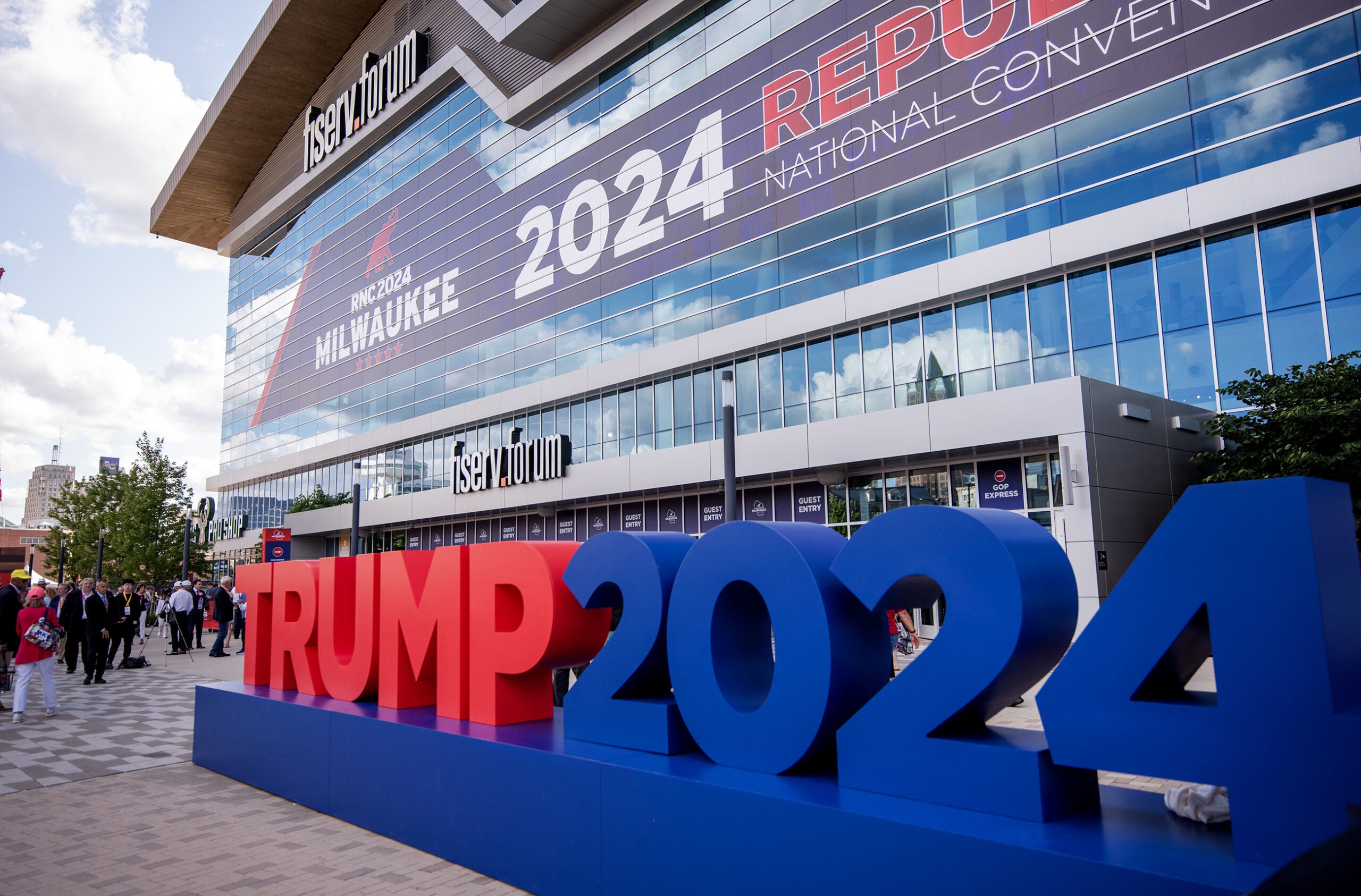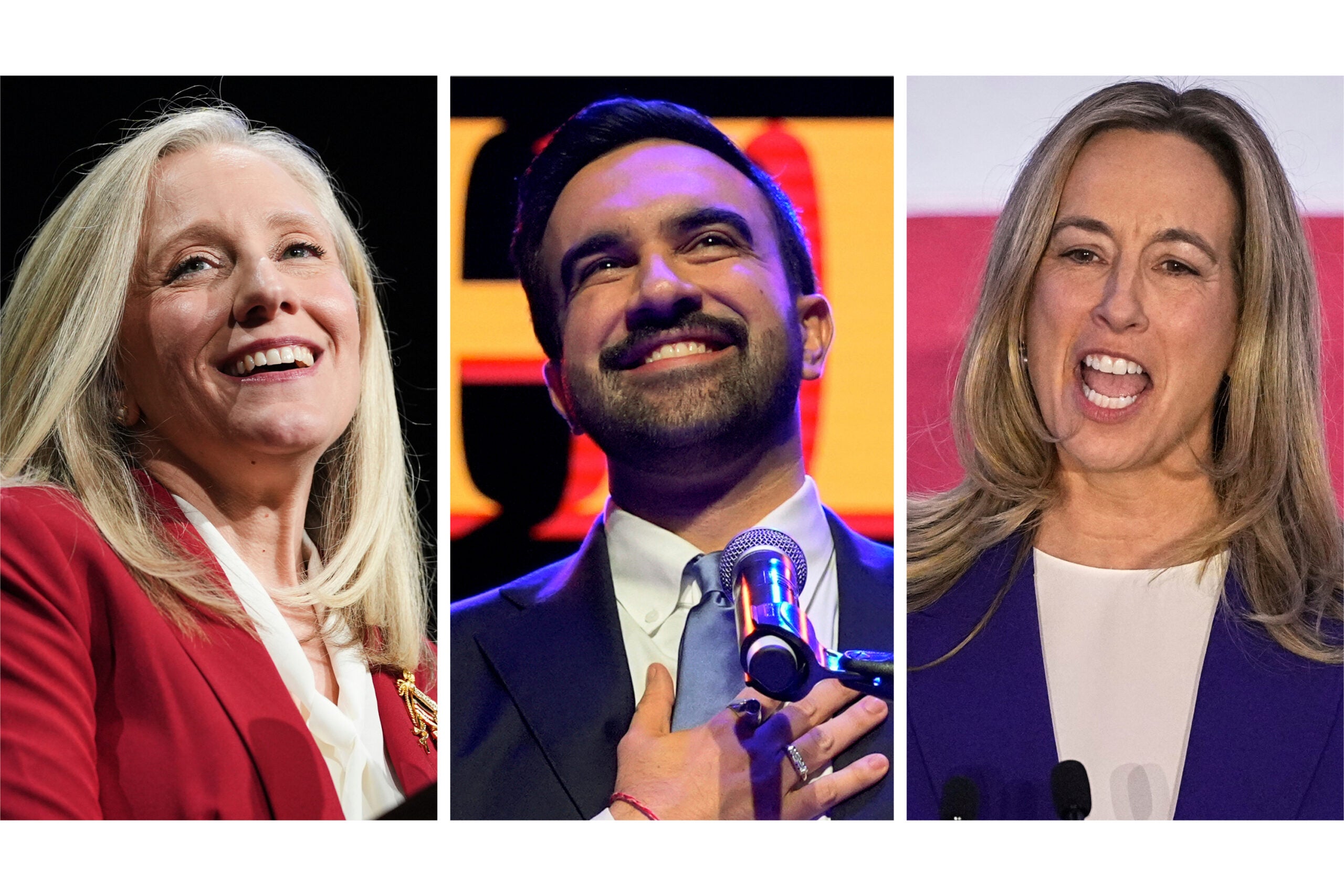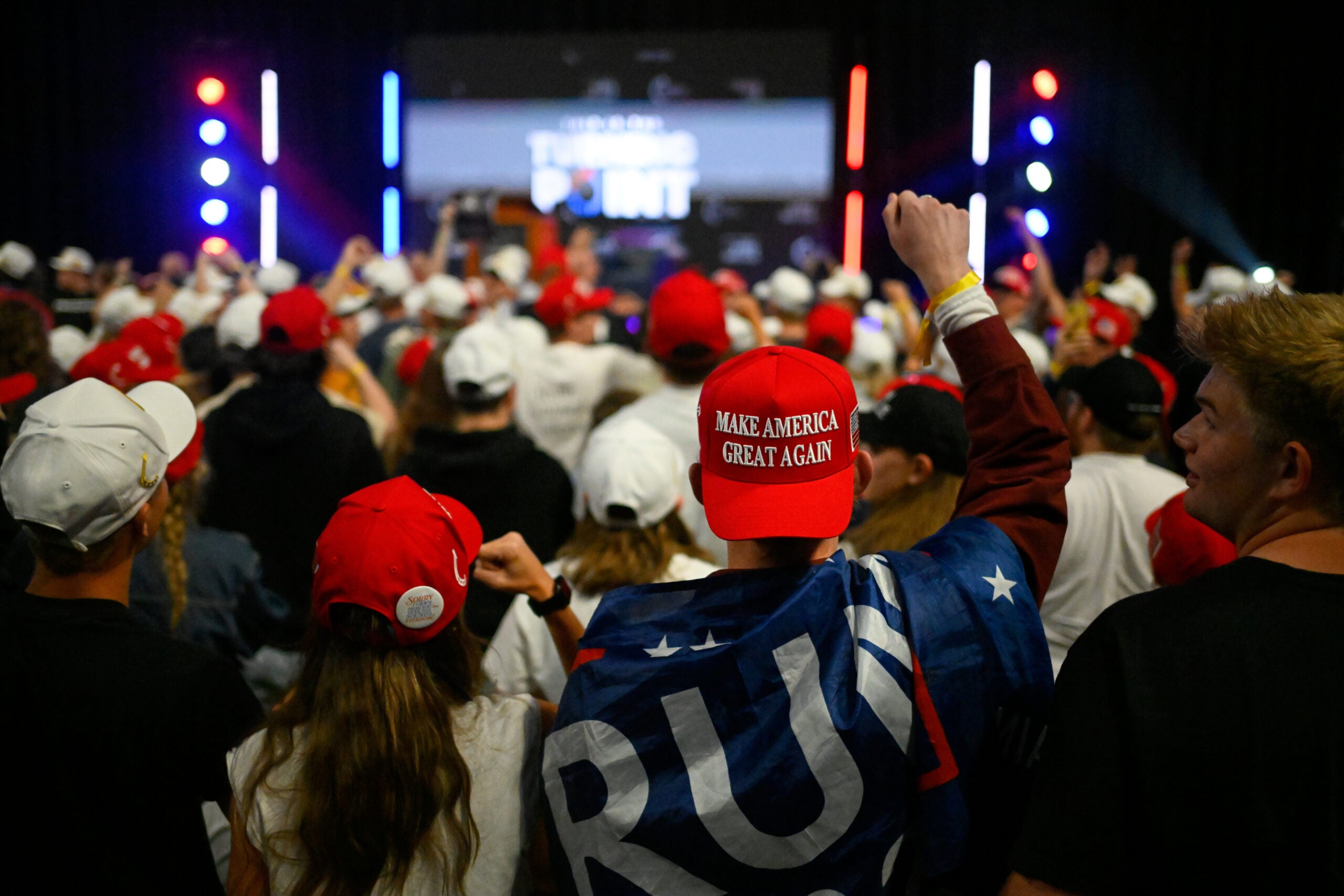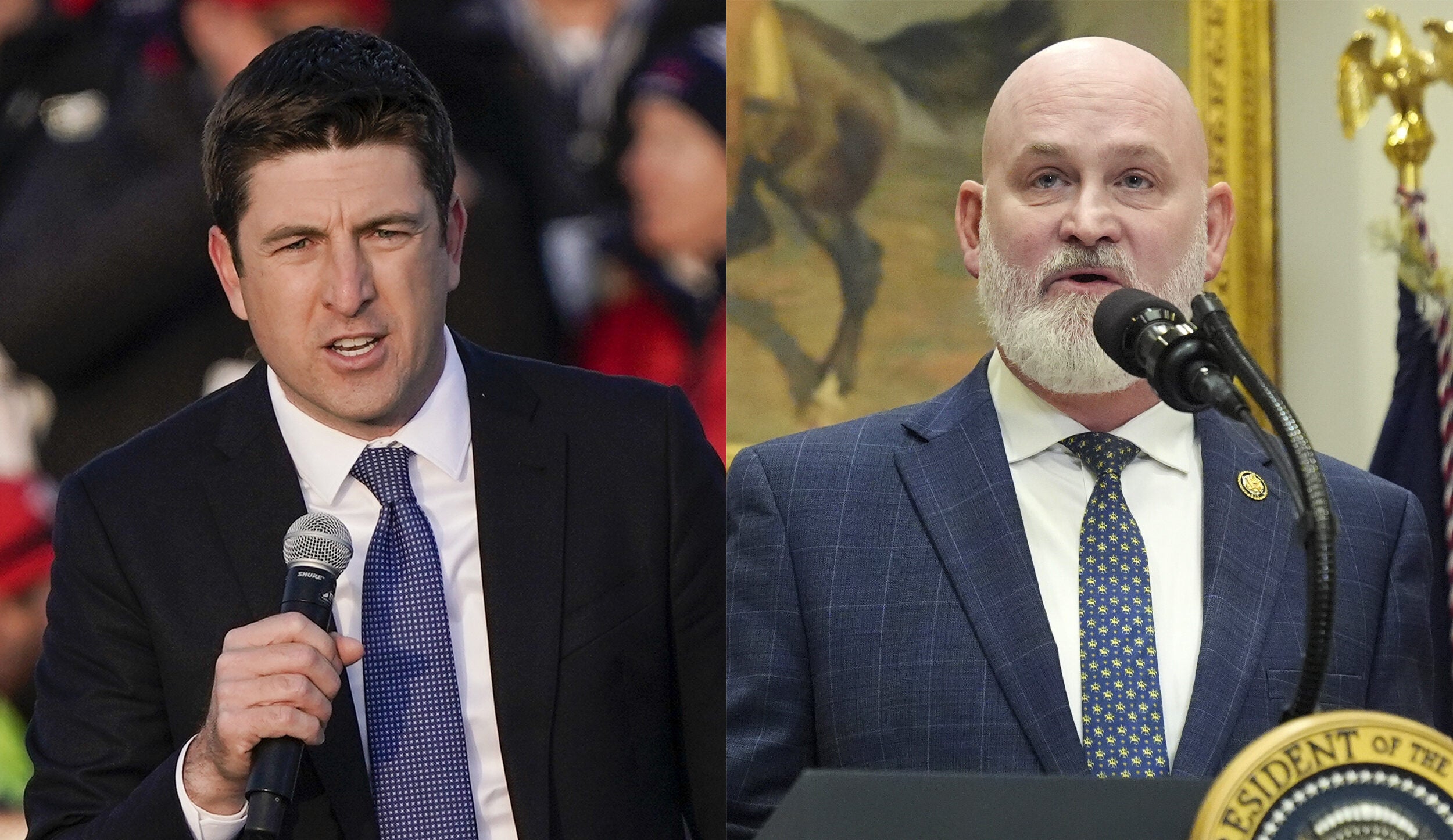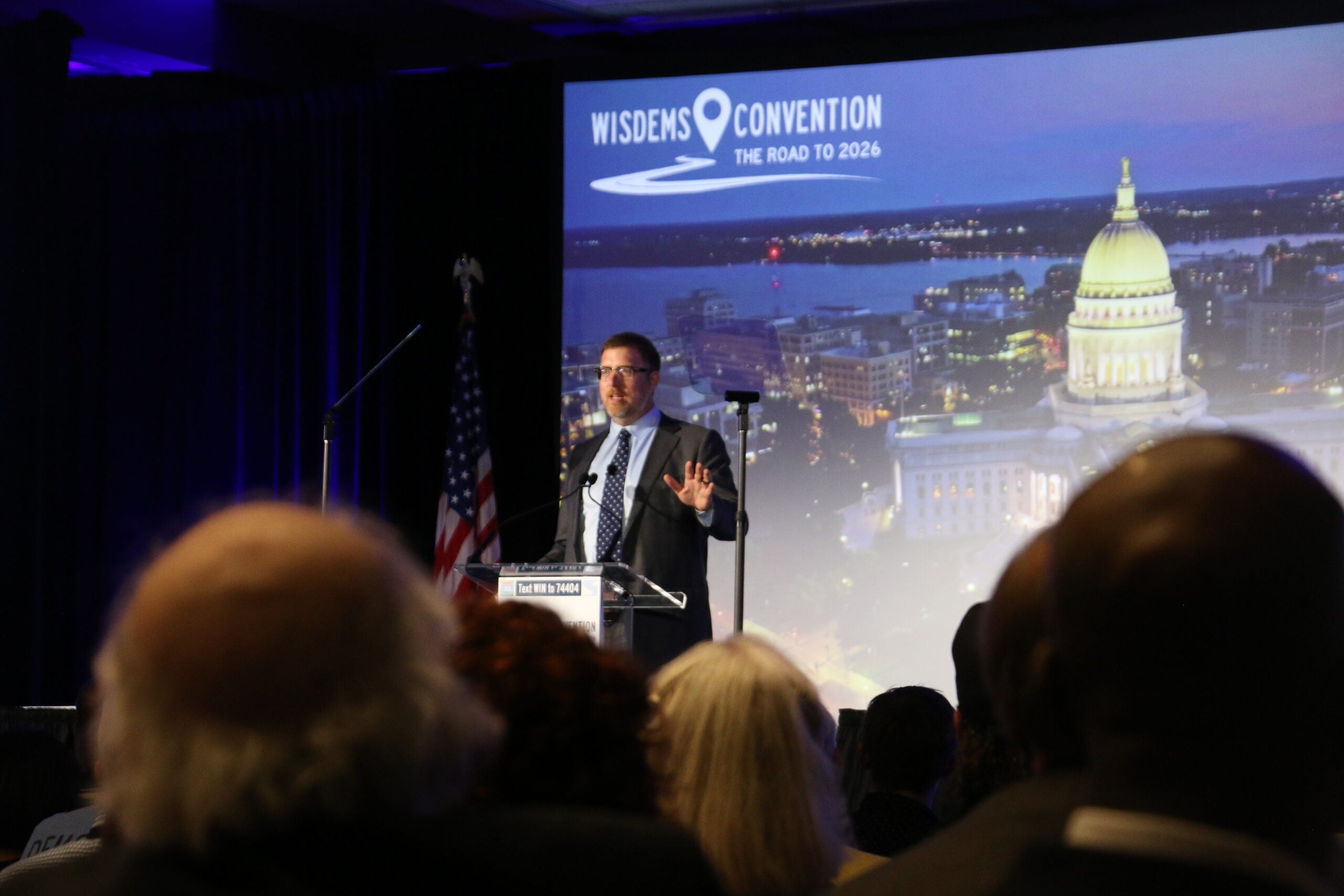The Republican National Convention in Milwaukee will conclude tonight when former President Donald Trump formally accepts his party’s nomination.
WPR reporters Anya van Wagtendonk and Rich Kremer have been covering the state’s GOP delegation this week. They spoke with WPR Capitol Bureau Chief Shawn Johnson about Republican efforts to court unions and young voters — two groups who’ve traditionally backed Democrats.
This transcript has been edited for brevity and clarity.
News with a little more humanity
WPR’s “Wisconsin Today” newsletter keeps you connected to the state you love without feeling overwhelmed. No paywall. No agenda. No corporate filter.
Shawn Johnson: Anya, you had a story this week about the speech from Teamsters President Sean O’Brien to the Republican National Convention. Let’s just stop right there for a minute. The head of the Teamsters addressed the RNC. How unusual is that?
Anya van Wagtendonk: Very unusual. This is the first time that a Teamsters president has addressed the RNC in the organization’s 121-year history. O’Brien has said that this is a means of courting bipartisan support for unions. And in his speech, he said it doesn’t matter what party alliance a politician has — all lawmakers need to be supporting unions.
SJ: And so he didn’t endorse Trump at the convention, but it definitely rubbed some unions the wrong way. You talked to some union leaders in Wisconsin and elsewhere. What did they say?
AVW: I spoke with union leaders at the local, state and national level. A lot of them said that they agree with his overall method — kind of castigating corporate greed and taking big bosses to task. But they say that the Democratic Party and specifically President Biden, who has positioned himself as the most pro-union president in history, is actually the candidate that will move their interests forward.
SJ: And this is all happening in Wisconsin, the state where Republicans under former Gov. Scott Walker made national news when they passed those restrictions on collective bargaining known as Act 10. Unions famously fought Walker. Is there any sense that they’d be open to supporting Trump in 2024?
AVW: Studies are indicating that actually rank-and-file union members are starting to move a little bit away from the Democratic Party. And so when I talk about the way that these unions endorsed Biden or are aligned with the Democratic Party, that is at the leadership level. Rank-and-file members don’t have to vote in lockstep.
And we are seeing that some of Trump’s message of being pro-worker rather than specifically pro-union does resonate with many people who feel that the economic tides are not in their favor.
SJ: Rich, your story looked at another group of voters who have been associated typically with Democrats — young people. There are a few young Republicans in Wisconsin’s delegation to the RNC. Who’d you talk to and how did they get into politics?
Rich Kremer: You’re right, there are a handful of very young Republican delegates. They are essentially in their early-to-mid-20s.
One of them is Dixon Wolfe of Green Bay. He got interested in politics at the ripe old age of 14. He’s now 22 years old. Another individual I talked to was Brandon Maly. He’s been working on campaigns since he was in his teens.
So what I heard from these individuals is that the idea of homeownership is one that seems hard to reach for people in their age group. And they’re turned on by Donald Trump’s message of economic prosperity, essentially, through the Republican Party. So Dixon Wolfe, in particular, said that he thinks Gen Z is quite conservative, actually.
SJ: Some of these Republicans kind of came of political age at the time that Donald Trump was running for president in 2016. You mentioned to one of the delegates you talked to that some critics of Trump see the GOP moving away from a focus on conservative policies to populism and personality.
RK: And he said that’s good. And he thinks it’s going to stay that way with regard to the Republican Party, and he doesn’t want to see it go back. And in a sense, populism to him means “of the people,” and that the party is more focused on the “forgotten men and women of America.” And he thinks that there’s real strength in focusing on them and growing the party as a result.
SJ: With young people, there does seem to be data showing that this is not entirely anecdotal. What’s it show?
RK: This is new data from the Pew Research Center that came out just before the Republican National Convention here in Milwaukee. It shows that registered voters within the 18- to 29-year-old age group are essentially moving away from the Democratic Party and moving towards the Republican Party. That’s a first, and that matters in states like Wisconsin, where elections are often decided by 1 percentage point.
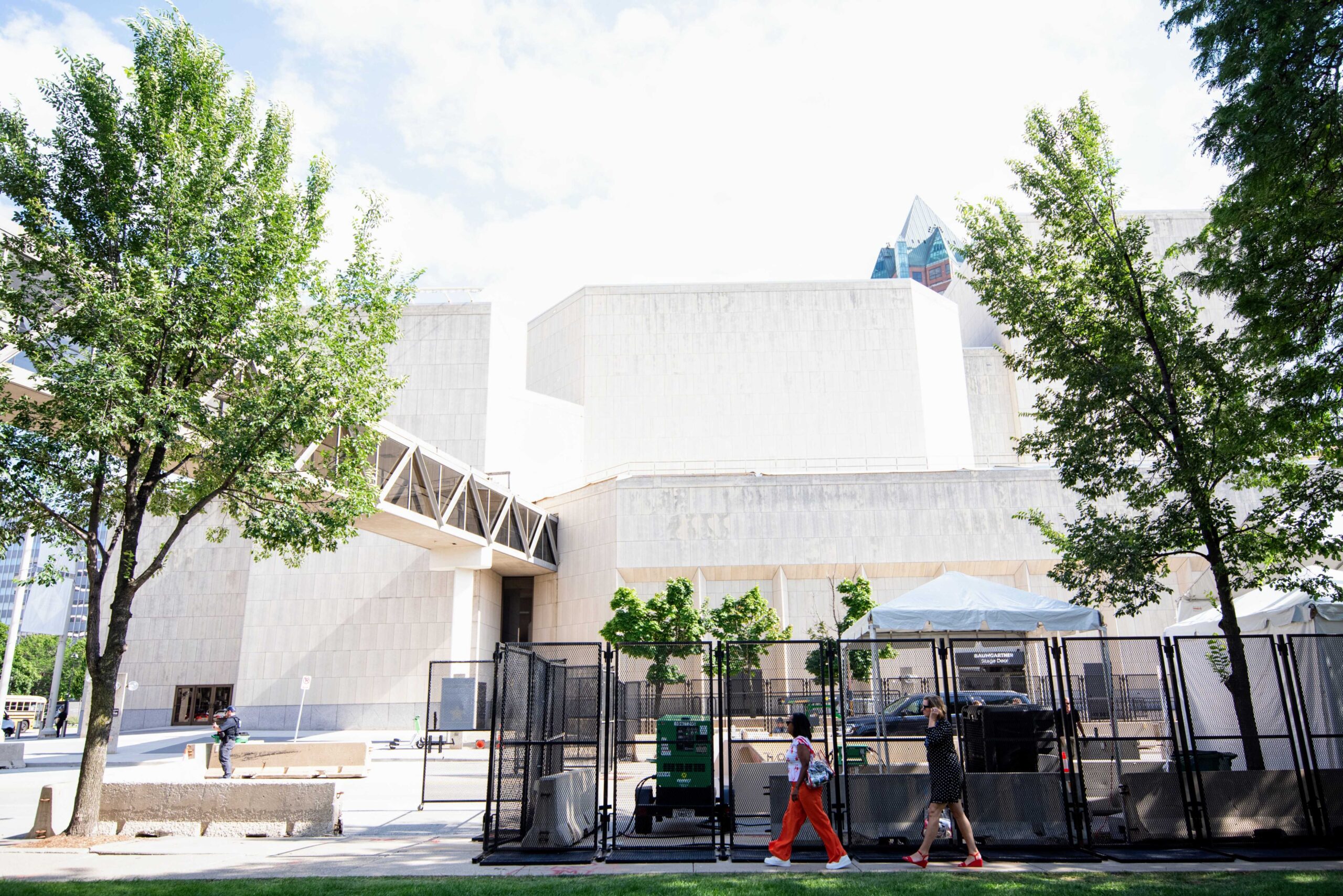
SJ: We’ve heard a lot about tight security downtown, especially following the assassination attempt of former President Trump. For people who’ve not been to a national convention before, who have not ventured downtown Milwaukee this week, what is it like down there right now?
AVW: You know, it’s really interesting. The area around the security perimeter is surprisingly quiet for a beautiful summer in Milwaukee. And then you kind of approach these miles and miles of security fences all around the Fiserv Forum and the area around where delegates are staying. And you kind of enter into another universe.
You go through a really strict Secret Service protocol. I had my favorite water bottle confiscated, which I’m still a little upset about.
And then you enter into this totally different universe where party faithful from all over the country are milling about. There’s vendors, there’s activities going on, but it really is kind of these two different worlds in downtown Milwaukee.
RK: Yeah, it strikes me as a private party in the middle of a city. It’s a fun festive atmosphere, but there’s also these strange corridors where there’s not many people. You’re kind of walking down a city street that is essentially a sidewalk between buildings. It’s really an interesting atmosphere for a newbie who has never covered something like this before.
Wisconsin Public Radio, © Copyright 2025, Board of Regents of the University of Wisconsin System and Wisconsin Educational Communications Board.

